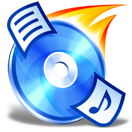Windows Media Audio (WMA) is a series of audio codecs and their corresponding audio coding formats developed by Microsoft. It is a proprietary technology that forms part of the Windows Media framework. WMA consists of four distinct codecs. The original WMA codec, known simply as WMA, was conceived as a competitor to the popular MP3 and RealAudio codecs. WMA Pro, a newer and more advanced codec, supports multichannel and high resolution audio. A lossless codec, WMA Lossless, compresses audio data without loss of audio fidelity. WMA Voice, targeted at voice content, applies compression using a range of low bit rates. Microsoft has also developed a digital container format called Advanced Systems Format to store audio encoded by WMA.

SourceForge is a web-based service that offers software developers a centralized online location to control and manage free and open-source software projects. It provides a source code repository, bug tracking, mirroring of downloads for load balancing, a wiki for documentation, developer and user mailing lists, user-support forums, user-written reviews and ratings, a news bulletin, micro-blog for publishing project updates, and other features.
RealAudio is a proprietary audio format developed by RealNetworks and first released in April 1995. It uses a variety of audio codecs, ranging from low-bitrate formats that can be used over dialup modems, to high-fidelity formats for music. It can also be used as a streaming audio format, that is played at the same time as it is downloaded. In the past, many internet radio stations used RealAudio to stream their programming over the internet in real time. In recent years, however, the format has become less common and has given way to more popular audio formats. RealAudio was heavily used by the BBC websites until 2009, though it was discontinued due to its declining use. BBC World Service, the last of the BBC websites to use RealAudio, discontinued its use in March 2011.

VideoLAN is a non-profit organization which develops software for playing video and other media formats. It originally developed two programs for media streaming, VideoLAN Client (VLC) and VideoLAN Server (VLS), but most of the features of VLS have been incorporated into VLC, with the result renamed VLC media player.
RealVideo is a suite of proprietary video compression formats developed by RealNetworks – the specific format changes with the version. It was first released in 1997 and as of 2008 was at version 10. RealVideo is supported on many platforms, including Windows, Mac, Linux, Solaris, and several mobile phones.

Audacity is a free and open-source digital audio editor and recording application software, available for Windows, macOS, Linux, and other Unix-like operating systems. Audacity was started in the fall of 1999 by Dominic Mazzoni and Roger Dannenberg at Carnegie Mellon University and was released on May 28, 2000 as version 0.8.

VLC media player is a free and open-source, portable, cross-platform media player software and streaming media server developed by the VideoLAN project. VLC is available for desktop operating systems and mobile platforms, such as Android, iOS, iPadOS, Tizen, Windows 10 Mobile and Windows Phone. VLC is also available on digital distribution platforms such as Apple's App Store, Google Play and Microsoft Store.

Media Player Classic (MPC), Media Player Classic - Home Cinema (MPC-HC), and Media Player Classic - Black Edition (MPC-BE) are a family of free and open-source, compact, lightweight, and customizable media players for 32-bit and 64-bit Microsoft Windows. The original MPC, along with the MPC-HC fork, mimic the simplistic look and feel of Windows Media Player 6.4, but provide most options and features available in modern media players. Variations of the original MPC and its forks have been and are, standard media players in the K-Lite Codec Pack and the Combined Community Codec Pack.
Apple Lossless, also known as Apple Lossless Audio Codec (ALAC), or Apple Lossless Encoder (ALE), is an audio coding format, and its reference audio codec implementation, developed by Apple Inc. for lossless data compression of digital music. After initially keeping it proprietary from its inception in 2004, in late 2011 Apple made the codec available open source and royalty-free. Traditionally, Apple has referred to the codec as Apple Lossless, though more recently it has begun to use the abbreviated term ALAC when referring to the codec.
Digital Living Network Alliance (DLNA) was founded by a group of PC and consumer electronics companies in June 2003 to develop and promote a set of interoperability guidelines for sharing digital media among multimedia devices under the auspices of a certification standard. DLNA certified devices include smartphones, tablets, PCs, TV sets and storage servers.

Paint.net is a freeware raster graphics editor program for Microsoft Windows, developed on the .NET Framework. Paint.net was originally created by Rick Brewster as a Washington State University student project, and has evolved from a simple replacement for the Microsoft Paint program into a program for editing mainly graphics, with support for plugins.

CDBurnerXP is an optical disc authoring utility for Windows 2000 and later, written mostly in Visual Basic .NET as of version 4, released in September 2007. It has international language support. The software is available to download in both 32-bit and 64-bit variants.

Avidemux is a free and open-source software for non-linear video editing and transcoding multimedia files. The developers intend it as "a simple tool for simple video processing tasks" and to allow users "to do elementary things in a very straightforward way". It is written in C++ and uses Qt for its graphical user interface, and FFmpeg for its multimedia functions. Starting with version 2.4, Avidemux also offers a command-line interface, and since version 2.6, the original GTK port has not been maintained and is now discontinued.
libavcodec is a free and open-source library of codecs for encoding and decoding video and audio data.
The following tables compare general and technical information for a variety of audio coding formats. For listening tests comparing the perceived audio quality of audio formats and codecs, see the article Codec listening test.

Miro was an audio, video player and Internet television application developed by the Participatory Culture Foundation. It runs on Microsoft Windows, macOS, FreeBSD and Linux and supports most known video file formats. It offers both audio and video, some in HD quality.

HandBrake is a free and open-source transcoder for digital video files, originally developed in 2003 by Eric Petit to make ripping a film from a DVD to a data storage device easier. Since then, it has undergone many changes and revisions.
An online video platform (OVP), provided by a video hosting service, enables users to upload, convert, store and play back video content on the Internet, often via a structured, large-scale system that may generate revenue. Users generally will upload video content via the hosting service's website, mobile or desktop application, or other interface (API). The type of video content uploaded might be anything from shorts to full-length TV shows and movies. The video host stores the video on its server and offers users the ability to enable different types of embed codes or links that allow others to view the video content. The website, mainly used as the video hosting website, is usually called the video sharing website.







